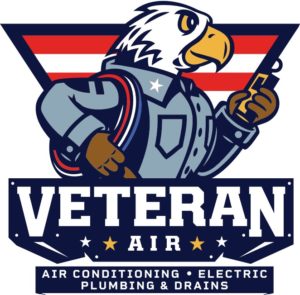A high humidity level provides an optimum environment for mold to grow. They easily grow in damp, humid areas and at temperatures between 70°F and 90°F.
The presence of mold on your carpet or drywall spells trouble, but mold can also grow in unexpected areas such as your heating, ventilation, and air conditioning (HVAC) system.
The growth of mold in the HVAC unit is hazardous to anyone living in the home, including your pets. If your HVAC system has mold in it, the airflow will spread the mold spores throughout the entire home after turning on the AC.
The mold spores will contaminate the room and can cause complications in the future, including health issues associated with mold exposure. You can also start to have respiratory problems, so it is important to take the right measures to prevent mold growth.
Detect the Presence of Mold in Your HVAC System
You can detect the presence of mold in the HVAC system even if it is not visible.
The presence of a musty smell in one or more than one room is a sign of mold presence in your HVAC system.
Worsening of smells when the furnace or air conditioning is running can be due to the presence of mold.
As mold cannot be seen with the naked eye, the best way to determine mold contamination is to get your HVAC system checked by a licensed HVAC company.
Important Tips to Avoid mold from Growing in the HVAC system
The presence of mold is linked with many health problems; therefore, it is important to take the right measures to prevent it.
Change Your Air Filter
In an HVAC system, air passes to the ducts through an air filter. The role of the air filter is to purify the air from impurities, pollutants, and dust. Changing the air filter is the simplest way to keep your AC system maintained.
A clean air filter reduces energy consumption by up to 15% and maintains indoor air quality. It also prevents the spores, allergens, and harmful particles from reaching the unit. Air filters not only protect the air quality of your home but also protects the HVAC unit.
Keep the Ducts Clean
The air in the house passes through the ducts present in the HVAC system, and if mold is present in the system, they will be inhaled along with air.
These spores can cause allergic reactions, and if you have asthma, the symptoms can get worse. Make sure to clean the ducts annually because, in case of any leaks, the spores can settle down in your home.
Check the Drain Pans
The drain pan is located beneath the evaporator coils in the HVAC unit. They are susceptible to mold. The condensation dribbles off the evaporator coil to drain the pan, making a perfect place for mold to grow.
It is important to prevent mold from growing by cleaning it regularly. Ensure that the drain pan is not left damp and there aren’t any leaks or cracks.
Get Your HVAC Inspected by Experts
Your AC systems can continue to work even if there are problems. Therefore, it is highly recommended to get the system checked by a licensed HVAC professional.
Veteran Air consists of a team of highly trained technicians who provide comprehensive HVAC services, and with a thorough inspection, they reveal the problems that can affect the energy efficiency or atmosphere of your home.
It is recommended that you have your HVAC system inspected at least once a year to avoid serious complications. Call us today to schedule your inspection 941-404-1788.


